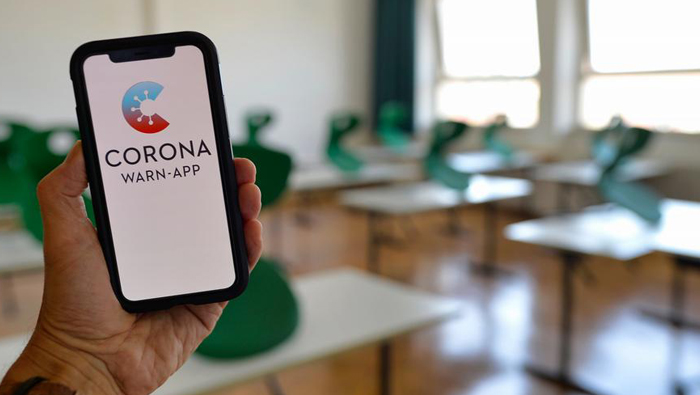
Frankfurt: Developing a successful COVID-19 app has been seen as a kind of Holy Grail since the pandemic exploded around the world in March. Since then, many countries have developed their own apps in the hope that they can master digital contact tracing and get outbreaks under control quicker and more effectively than any team of human contact tracers ever could.
However, at the start of 2020, the concept of a mobile app aimed at containing a pandemic was not tried and tested. Many questions remain unanswered about the technology, effectiveness, functionality and arguably most importantly, the ethics of such apps.
What is already clear is that it's not an easy business. Germany's Corona-Warn-App had seemed to be making decent headway. As of July 24, the app had been downloaded 16.2 million times in Germany according to the Robert Koch Institute (RKI) — accounting for an impressive 20 per cent of the population.
Yet that was the same day that tabloid newspaper Bild revealed that for five weeks, the app had not been working properly for potentially millions of users. Some Android operating systems had blocked the app from running in the background to save power, meaning its key function — to send a user an alert if they met someone who had tested positive for the virus — may not have worked.
The German Health Ministry says the issue has now been fixed but it is far from the only example of a COVID-19 app that has had problems.
Measuring success
It's not yet clear how to measure success in the COVID-19 app business and it may never be. While number of downloads relative to a population size is obviously a key metric, it becomes less so if the app has functionality issues or is seen to be unreliable.
Even with an app that works well and which sees a major take-up rate within a population, many contact tracing experts say it is not easy to establish the precise role an app will play in containing rates of infection.
For example, apps that don't store data at a centralised location may work very well, but there is no central authority with the data to say exactly how many people were successfully warned about the risk of infection.
Big numbers
In terms of pure volume of downloads, India's Aarogya Setu app is a frontrunner. In April, it was in the top 10 most downloaded apps in the world with only tech behemoths like Zoom, TikTok, Facebook, WhatsApp, Instagram and Messenger ahead of it.
According to data from Sensor Tower, a mobile app consultancy, Aarogya Setu had more than 127 million downloads by mid-July. It had reached the 100-million mark within 40 days of being made available.
But India has a population of over 1.3 billion. With less than 10 per cent take-up, the chances of two people coming into contact with each other who have both downloaded the app is around 1 per cent.
It has also faced plenty of criticism. The Massachusetts Institute of Technology's Technology Review is publishing a "COVID Tracing Tracker" to review various COVID-19 apps around the world. It rates apps on five key metrics, allocating a star for each one. Aarogya Setu scored just two stars, with the reviewers critical of the app for not being voluntary for millions of users, for not limiting the use of the data it collects and for the fact that it collects more data than it needs.
Yet compared with China and United States, either side of India at the top of the world population list, it hasn't done badly. China's health code system, carried on the platforms Alipay and WeChat, has not been at all transparent in terms of how its app works and how the data it stores is used.
In the US, the Exposure Notification API created jointly by Apple and Google is already in use by various countries around the world. In the US it can be developed into state-specific apps by individual health authorities in various states. There is no single national app. Yet so far, only a handful of states have committed to developing an app of their own using the Apple-Google technology.
There are early signs that countries with smaller populations are finding it easier to get collective buy-in for their apps. Iceland, with a population of less than 400,000, saw more than 40 per cent of its people download its COVID-19 app Rakning C-19 within a month of its launch.
Ireland, with 5 million, has also shown signs of early success. Its Covid Tracker app had been downloaded by 1.3 million within eight days of its launch in early July. That made it the fastest downloaded app per capita in Europe. Nearform, the company behind it, is now in talks with the Pennsylvania state health department, with other US states reportedly interested.
Bad apps and no apps
While countries all over the world have developed apps, particularly in Europe, not every nation that has been severely hit by the pandemic has managed to get an app launched.
The UK government has been heavily criticized for its response to the coronavirus crisis. It has recorded more than 45,000 deaths, one of the highest rates in the world in both absolute and per capita terms. It has also struggled with its app and faced major criticism as a result.
The UK has been planning to develop an NHS COVID-19 app since March. Still the country has not managed to launch one. Its original plan was ditched in June in favor of using the Apple-Google system instead of its own version, which had run into technical difficulties. Yet at the time of writing, it is not known when or if a UK app will be launched.